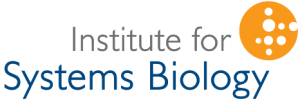The Gibbons group at the Institute for Systems Biology (ISB) is seeking a computationally-oriented Postdoctoral Fellow with interests in microbial ecology, evolution, and human health. The successful applicant will work with an interdisciplinary team of microbiologists, systems biologists, bioinformaticians, and clinical researchers to:
- Integrate and analyze multi-omic data from Arivale as part of the 100K Wellness Project, which is gathering detailed longitudinal data (genomics, proteomics, metabolomics, gut microbiome data, physiological data, activity data, etc.) on 100,000 people.
- Leverage published datasets, along with the 100K Wellness Project data, to identify putative causal links between the gut microbiome and human disease. These associations will serve as hypotheses for testing in animal models and in the clinic.
- Track the establishment, succession, and dynamics bacterial populations within the gut during the lifespan of a host organism in health and disease.
The work involves participation in and contribution to these larger projects through multi-site collaborations, but also offers the freedom to pursue one’s own research interests.
This position will provide an excellent opportunity to work and train as part of a highly motivated interdisciplinary team in the rapidly developing areas of the gut microbiome and personalized medicine. The ISB is a leading research institution in the fields of computational and systems biology with applications ranging from human health to environmental sustainability.
Who should apply? Successful candidates will have a PhD in microbial ecology, population genomics, computational biology or a related field. Preference will be given to candidates who have at least 4 years of research experience, including the design and implementation of scripts/algorithms/workflows for metagenomic and/or genomic analyses of bacterial communities/populations. In addition to computational expertise, candidates with experience in the wet-lab (e.g. bacterial culturing) are strongly encouraged to apply.
Strong analytical, programming and communication skills are essential. Experience with common bioinformatics methods, tools, websites and data resources is important, in particular high-throughput data analysis tools and techniques, statistical analysis, genomic analyses, metagenome analyses, and experience retrieving, manipulating and managing data from public data repositories such as NCBI. The ability to work with a variety of different biological data types is highly desired. Experience with culturing anaerobic microbes from stool is not necessary, but would be a welcome skill.
Applicants should include a brief 1-2 page summary of their research experience and interests, a first-author manuscript or preprint, a CV, and at least two professional references.
Deadline: April 15th
Start date: Any time between July and September 2018 (flexible)
